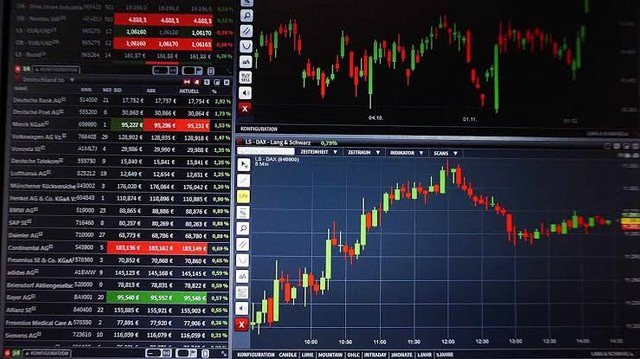.jpeg)
- Introduction:
Forex trading, short for foreign exchange trading, involves the buying and selling of different currencies in the global financial market. It's a highly liquid, decentralized market that operates 24 hours a day, five days a week. As a beginner, venturing into this market may seem intimidating, but with the right knowledge and strategies, you can profit from it.
- Understanding the Basics:
Firstly, understand that currencies are traded in pairs. For instance, EUR/USD, GBP/USD, or USD/JPY are examples of currency pairs. When you trade, you're essentially predicting whether one currency will strengthen or weaken against another. The first currency in the pair is the base currency, and the second one is the quote currency.
- How Forex Trading Works:
In Forex trading, you make money through the fluctuation of currency prices. If you predict that the base currency will strengthen against the quote currency, you'd buy the pair (go long). If you believe it will weaken, you'd sell (go short). For example, if you expect the Euro to strengthen against the US Dollar, you'd buy the EUR/USD pair.
- Starting With a Demo Account:
As a beginner, it's advisable to start with a demo account. Many forex brokers offer free demo accounts that mimic real trading conditions. This way, you can practice trading without risking real money, enabling you to understand the dynamics of the market and test your trading strategies.
- Understanding Leverage:
Leverage is a double-edged sword in forex trading. It allows you to control a large amount of money with a small investment, magnifying potential profits. However, it also magnifies potential losses. As a beginner, you should be cautious with the use of leverage until you have more experience.
- Implementing a Trading Strategy:
Having a well-defined trading strategy is crucial. It helps you identify trading opportunities, manage risks, and make more informed decisions. A good trading strategy includes elements like the entry and exit points, risk management rules, and the maximum amount you are prepared to lose.
- Continuous Learning:
The forex market is dynamic and constantly changing. Continual learning is necessary to keep up with market trends, economic news, and technological advancements. Reading books, taking online courses, and joining forex trading communities can help expand your knowledge.
- Conclusion:
Forex trading is a challenging yet potentially rewarding venture. As a beginner, understanding the market's basics, practicing with a demo account, cautiously using leverage, and having a solid trading strategy are key steps to your success. Remember, forex trading is not a get-rich-quick scheme, but a journey that requires patience, discipline, and continuous learning.